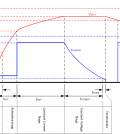FBDi association: EU battery regulation on the finish line

With a large majority, the EU Parliament adopted the Council position on the new EU Battery Regulation, which is to replace the previous EU Battery Directive of 2006. There were hardly any changes to the underlying draft of 10.2.2022.
The regulation is intended to ensure a more sustainable use of batteries throughout the EU and for the first time focuses on the entire life cycle of batteries. More fairness, respect for human rights and better protection of the environment – with regard to these goals, the FBDi supports the requirement that due diligence should be taken into account along the entire value chain, for example in procurement and processing.
Following the decision of the Environment Council, a quick agreement is to be reached in the so-called trilogue procedure between the EU member states, the EU Parliament and the EU Commission. After that, the Battery Regulation will come into force immediately throughout the EU.
While a Europe-wide deposit system did not receive majority approval, the following points, among others, are on the agenda for negotiation with the EU states:
· More stringent requirements for sustainability, performance and labelling of batteries
· Rules for a carbon footprint declaration for electric vehicles (traction batteries) and industrial batteries, and an associated label
· Introduction of performance classes and limits for traction and industrial batteries
· Introduction of a new category ‘Batteries for Light Means of Transport (LMT)’, such as e-bikes and e-scooters.
· Minimum durability and performance requirements for industrial batteries and general purpose traction batteries
· Mandatory use of a minimum amount of recycled lead, cobalt, lithium and nickel in new batteries.
· Designing batteries in devices such as smartphones and LMTs so that users and independent professionals can easily and safely remove them themselves.
· Increase collection rates to 70% (until 2030) for portable batteries and to 54% for LMT batteries (expected by 2030).
· Introduction of the Battery Passport as the first digital product passport at European level to bring together and make available important information along the life cycle of traction and industrial batteries.
Contenuti correlati
-
Battery: The source of a device – Li-ion chargers
In today’s world where more and more devices are becoming mobile, efficient battery usage has become essential, with engineers tending to prioritise the current consumption of the device. They devise numerous ways to reduce the power consumption,...









